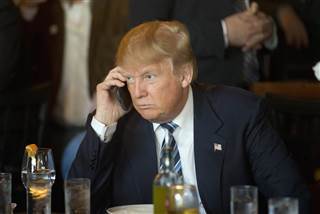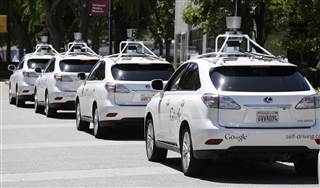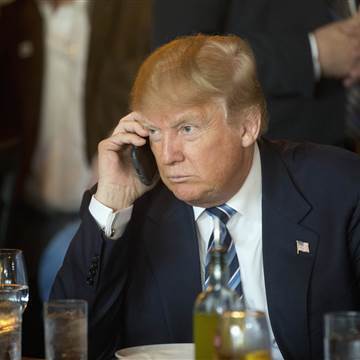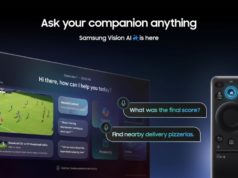As the soon-to-be leader of the free world, Donald Trump will play a part in everything from innovation and space exploration to policies governing this little platform he likes to call “the cyber.”
The billionaire mogul has trigger-happy Twitter fingers, but beyond his love for social media, he barely touched on technology issues while on the campaign trail.


“He doesn’t care about any policy issue other than immigration, taxes and terrorists,” says Berin Szoka, president of TechFreedom, a non-profit dedicated to promoting technology progress. “It means that everyone who cares about these issues is going to have to do a lot of hard work.”
According to the Global Innovation Index released in August, the United States ranks fourth for innovation, falling behind Switzerland, Sweden and the United Kingdom. And if there’s anything that irks Donald Trump, it’s not being No. 1.
While Trump hasn’t taken on tech issues with the same vigor he has for becoming “the greatest jobs president God ever created,”he has left some clues that paint a picture of what the next four years may look like for the tech and innovation sectors.
Related: Silicon Valley Had This Response to a Trump Presidency
For starters, Trump has promised to put coal miners back to work and bring manufacturing jobs back to the United States with little clarity for how he’ll balance job creation with the rise of artificially intelligent systems that can get the work done for less money.
A report released in October by the White House Office of Science and Technology Policy warned artificially intelligent powered automation could first threaten low and medium skill jobs. That could mean robots taking over in the service industry or on an assembly line.
“Public policy can address these risks, ensuring that workers are retrained and able to succeed in occupations that are complementary to, rather than competing with, automation,” the report said. “Public policy can also ensure that the economic benefits created by AI are shared broadly, and assure that AI responsibly ushers in a new age in the global economy.”


The government already showed how its preparing for a future of self-driving cars by issuing a rule book about the sale and manufacture of autonomous vehicles. While they may make our lives easier by reducing accidents, Trump will have to reconcile his desire to protect American jobs with a new self-driving future that could put millions of professional drivers out of work.
Naveen Jain, a billionaire entrepreneur who made his fortune in the dot com boom, says that while Trump can be unpredictable, it’s likely that technological innovation, including AI, self-driving cars and other breakthroughs, will be safe under President Trump.
“Technological improvements are rarely changed because of political things that happen in the United States and around the world,” he said. “Sometimes certain sectors may do better than others, but the sectors move globally.”
Not everyone in Silicon Valley is as optimistic. Dex Torricke-Barton, the former head of communications at SpaceX, quit his job on Tuesday to focus on building a grassroots movement called Onwards, which his site says is building a movement to “face the divisions threatening our future.”
Related: How the Tech Sector is Tackling Joe Biden’s Cancer Moonshot
Watching the refugee crisis, the rise of nationalist movements and the election of Trump, Torricke-Barton said he felt compelled to do something to keep the world from becoming a less inclusive place.
“Whatever is bad for the world and bad for society will be terrible for technology as well,” he says.
One quarter of entrepreneurs in the United States are immigrants, and Trump’s hard line on immigration is the opposite of what fosters openness and collaboration, according to Torricke-Barton.
More than 100 technology leaders wrote an open letter in July, claiming a Trump presidency would be a “disaster for innovation.” Among those who signed on were Apple co-founder Steve Wozniak, Wikipedia founder Jimmy Wales and Arielle Zuckerberg, a venture capitalist and sister of the Facebook CEO.
“His vision stands against the open exchange of ideas, free movement of people, and productive engagement with the outside world that is critical to our economy — and that provide the foundation for innovation and growth,” the letter said.


From his past statements, it’s also clear national security trumps privacy in the eyes of the President-Elect.
The sometimes tense and complicated relationship between Silicon Valley and the government was thrust into the spotlight in February when Apple CEO Tim Cook refused to help authorities find a way to unlock the iPhone used by one of the San Bernardino shooters.
Cook said in a letter that what the FBI was essentially demanding was for Apple to build a new operating system that could be installed on an iPhone. No such thing exists, but Cook said if it did, there would be no way to guarantee it would only be used for investigations, potentially jeopardizing the privacy of millions of Americans.
Related: Could One Person Take Down the Internet?
At the time, Trump called for a boycott of Apple until the iPhone maker cooperated with authorities. (Apple didn’t and the FBI said they found a way with outside help.)
Szoka, of TechFreedom, says he believes the Democrats missed an opportunity to pass legislation that would have helped solve possible future showdowns like the one Apple faced.That opportunity now rests with a Republican controlled Congress. “I am very concerned what it ends up looking like and it could make things too easy for law enforcement to get access,” he says.
There’s already been an upswing in people looking for secure communications.
…







